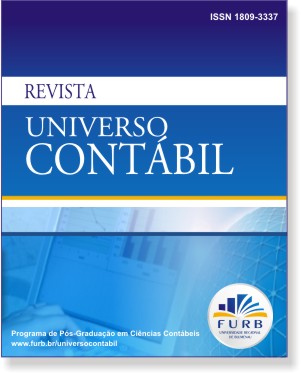MANAGEMENT CONTROL SYSTEMS: COMPARATIVE CASE STUDY IN BRAZILIAN INNOVATIVES COMPANIES
DOI:
https://doi.org/10.4270/ruc.20106Keywords:
Management control systems. Diagnostic use. Interactive use. Innovative companies.Abstract
The purpose of MCS (Management Control Systems) is to influence managers to achieve organizational objectives, which are often in conflict, specially regarding temporal dimension. One of the conflicts is related to innovation, because the companies need to innovate so they can obtain results in long term, maintaining, however, rational control of resources to survive in short term. The objective of this study is to identify if this conflict is present in three companies listed as innovative in the Index Brazil of Innovation, developed by UNICAMP/UNIEMP/FAPESP. Based on the theoretical model Diagnostic and Interactive MCS Use (SIMONS, 1995, 2000), three companies were studies through a personal interview with controlling professionals, having a content analysis later. The results showed that the conflict between innovation and control is not present in these organizations, what can be explained once innovation is a permanent value in these companies. The result also showed that these companies use traditional MCS tools, which do not inhibit this innovation, being, on the contrary, important to stimulate innovation. The constraint of the research was that all observations were restricted to interviews and to a small number of companies, which does not allows the results to be generalized but, even being so, this article contributes to show relevant aspects of the practice and suggests new researches with bigger samples of companies.
Downloads
Downloads
Published
How to Cite
Issue
Section
License
The copyright for papers published in this journal belong to the author, with rights of first publication for the journal. As the papers appears in this publicly accessed journal, the papers are for free use, receiving their credit, in educational and non-commercial uses. The journal will allow the use of the papers published for non-commercial purposes, including the right to send the paper to publicly accessed databases.


